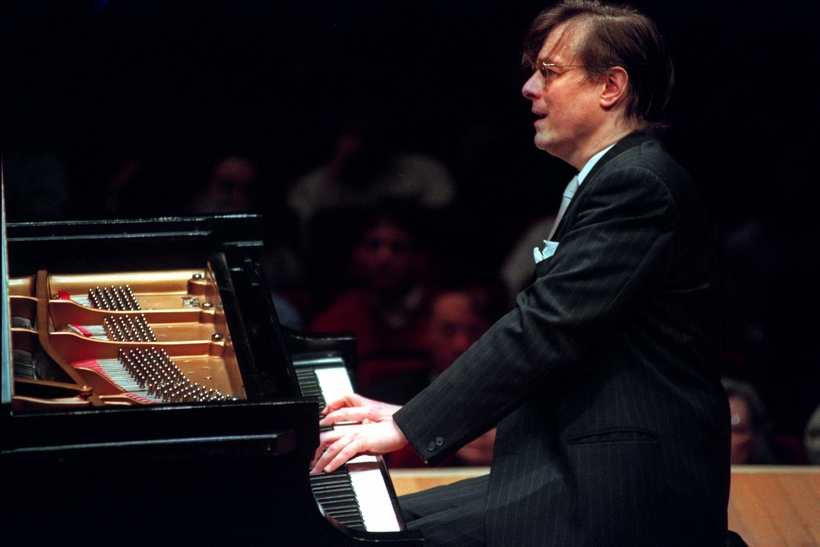Peter Serkin was born into classical music royalty. His father was the pianist Rudolf Serkin and his mother, Irene Busch Serkin, was the daughter of violinist Adolf Busch. The two German émigré families—Busch and Serkin—founded the Marlboro Music School and Festival in 1950, and to this day a summer residency at Marlboro is one of music’s highest honors. Before Peter was out of his teens, he had made his first piano recording for RCA Victor, which won him a Grammy as Most Promising New Classical Recording Artist of 1966. It would have been so easy for the handsome and aristocratic young man to have settled into the role of touring superstar.
But Serkin showed little interest in the “the music business.” Rather, he explored Eastern philosophy, listened to rock and jazz, grew his hair long (to the temporary shock of his conservative father), and, in his mid 20s, moved to Mexico and gave up playing. When he returned to New York a few years later, he insisted upon making music his own way—thoughtfully, creatively, with keen intelligence, box office be damned! For the rest of his life, he mingled the most profound and venerated classics with contemporary works by composers he admired, and his chamber group Tashi helped introduce Olivier Messaien’s Quartet for the End of Time to a world audience.
Serkin turned down almost all interviews, but was readily available to fellow musicians, who revered him as a gentle teacher and unpretentious friend. When he died on February 1 from pancreatic cancer, a clip from his YouTube channel was shared widely. It presents the 70-year-old Serkin outdoors on a street in Brunswick, Maine, in 2018. On a lovely, ordinary June day, accompanied by the sounds of birds, traffic, and a passing breeze, he plays a Bach invention on a little upright piano in serious need of restoration. The spirit is light, the music is beautiful, and the pianist seems comfortable to play in and for the joy of the moment, with serene appreciation of its imperfection and impermanence.
